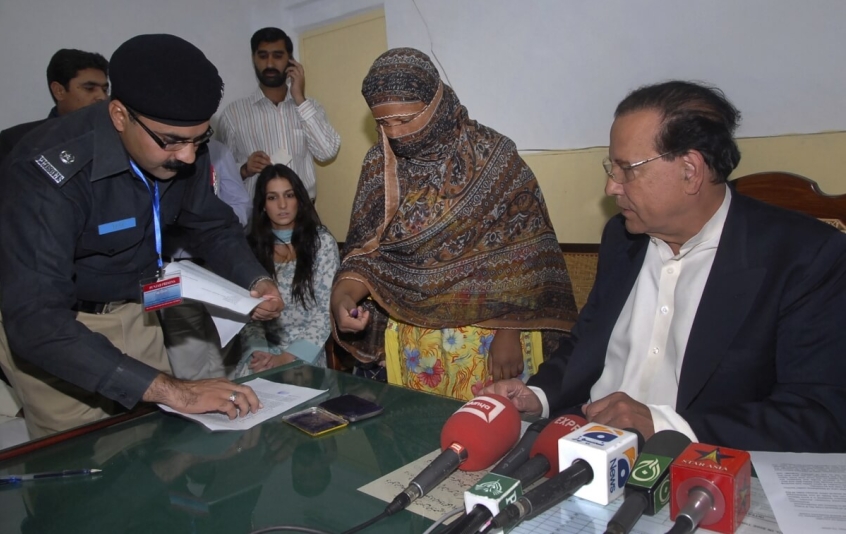Asia Bibi, the Christian on death row for blasphemy in Pakistan, will have her final appeal heard by the Supreme Court in the second week of October.
The hearing will be Bibi's last chance to overturn the decision which sentenced her to death in 2010 under Pakistan's controversial blasphemy laws. The date for Bibi's return to court was confirmed to International Christian Concern (ICC) and is the final legal avenue available to avoid execution.

Advocate Said-ul-Malook, Bibi's lawyer, told the persecution charity ICC: "I will appear before the Supreme Court of Pakistan and argue her case while she will remain in prison.
"I hope the result will be an acquittal."
The case stems from a dispute that took place between Bibi and a group of Muslim women in June 2009. An argument allegedly erupted after Bibi, who says the Islamic women considered her unclean because of her Christian faith, drank from the same water bowl as them.
Later the women told a local cleric that Bibi had blasphemed against Islam by saying: "My Christ died for me. What did Muhammad do for you?"
She was sentenced to death in 2010 by a local court in Punjab before her High Court appeal was delayed and rescheduled seven times. It was finally held on October 16, 2014 at the Lahore High Court but Justice Anwar-ul-Haq, one of the two judges hearing the appeal, confirmed her death sentence.
The Supreme Court of Pakistan accepted her petition for the case to be reviewed on July 22, 2015 and her death sentence was suspended. At the time, her lawyer Malook said he was "optimistic" the court would acquit Bibi. "The standard of evidence which is required to prove [this] offence is not available in this case," he said.
If Bibi's appeal is overruled, her only chance of avoiding execution would be through a presidential pardon.
A number of human rights groups and religious freedom charities, including ICC, consider Bibi's case indicative of how Pakistan's blasphemy laws are used against minority groups.
ICC's regional manager William Stark said the case was "one of the best examples" of Christians being targeted "by radicals wielding Pakistan's controversial blasphemy laws". He added the laws were "widely abused and often used as a tool to settle personal scores or spread religious hatred".
Stark went on: "Threats from Islamic radical groups and general discrimination against Christians in Pakistan have transformed courts into little more than rubber stamps for blasphemy accusations brought against Christians regardless of the evidence brought to bear in the case.
"It is ICC's hope that the Supreme Court will resist these pressures and decide Bibi's case on the merits.
"If decided on the merits, we believe the court's only conclusion will be to acquit. That decision will lay a foundation for practical steps toward religious harmony in Pakistan and will be a signal that justice will prevail over extremism in Pakistan's courts even when a religious minority is accused of blasphemy."













